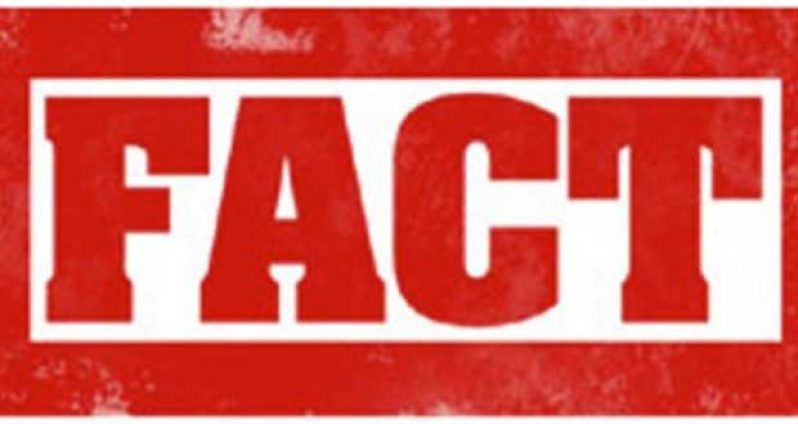FACT 1: There is no over harvesting of Guyana’s Forest. Harvesting by all forestry operators must comply with approved harvest levels set in Annual Operational Plans. These levels are based on the precautionary principle, are set to ensure that the forest naturally regrow (naturally regenerate) and all other functions that the forest provide remain intact.
All Joint Venture Partners that are harvesting have approved Annual Plans for 2014 with clearly established maximum harvest levels. These companies also had approved Annual Plans for 2013.

The table above shows that in every case, there is unutilised quota for each concession. This also means that there is no overharvesting of the forest by Bai Shan Lin.
FACT 2:
Guyana has in place national log tracking system that allows for every log harvested from forest to be traced back to its legal origin. Each company is allocated a fixed amount of log tracking tags based on their allowable harvest level. Log tracking tags are unique to each company and cannot be reused or tampered with.
The GFC conducts verification and reconciles produced declared and allocated log tracking tags, by concessions. Each concession holder has to account for log tracking tags issued to them.
Bai Shan Lin has been in compliance with the national log tracking system and has reported on the legal origin of its forest produce harvested.
FACT 3:
There is a multi-tiered system of reporting of forest produce harvested and exported. Harvesting, Transportation, and Exportation of forest produce is guided by a series of processes and documentation that are systematically checked at each stage of the forest monitoring system. At each stage, if there is detection of non-compliance, the GFC’s takes the necessary corrective action.
Whether harvesting is done at the level of a concession or through a Joint Venture Partner, the forest monitoring and legality system is consistently and uniformly applied. The table below summarizes the multi-tiered system of forest monitoring and legality checks:

Bai Shan Lin has been licensed to export forest produce which includes logs.
Exports of forest produce from Joint Venture partners also require for that Joint Venture Partner to have an export license.
In the case of Bai Shan Lin Joint Venture Partners, each of them has a Valid Export License.
FACT 4:
GFC’s forest management guidelines required for forest concession to consolidate the storage of harvest produce in a central location. It is often the case that once one has one or at most 2 such locations. These are commonly called Log Market/Yard/Decks. The GFC conducts regular inspection, verification and marking of forest produce at the Log Market.
In the case of the Bai Shan Lin Log Market at Bissaruni, the produce being stored at this central point, is the consolidation of harvested produce of Bai Shan Lin’s Concession as well as that of its Joint Venture Partners.
In keeping with the Sustainable Annual Harvest Level, this Log market is developed and approved to consolidate 57,056m3 or approx. 19,000 logs. This means that the Joint Venture Partners, Bai Shan Lin, and other stakeholders in the area, can store logs at this central point.
As at end of July, 2014 there were less than 3,000 log at Bisarruni.
This concludes that there is no evidence of overharvesting of the forest, based on logs stored at Bisarunni.
Fact 5:
India and China have consistently been strong markets for Guyana forest produce, even in years of global economic downturn. These markets, although attracting primary forest products, has been instrumental in opening up market opportunities for timber species that were previously not harvested or exported in significant volumes.
One such species is Wamara. The Chinese and Indian market have stimulated the demand for this species and has transformed this species from its previously categorised, lesser utilised status, to a highly demanded, prime timber species that it is today.
This has benefitted significantly, many small concession holders, especially in the Region 10 area, as this area is known for having an abundance of Wamara.
Export of Wamara Logs, as reported to the GFC by the processing sub sector, is preferred, as currently, the local sawmilling industry experiences challenges in further processing of this species. This is due to the physical properties, including its texture and resins, which makes processing by the local sawmilling industry, challenging. Additionally, local demand in Guyana is quite limited for this species at present and for local sawmilling industry to process this species, it has been reported, that some re-tooling may be required.
Building the added value forest market is an imperative for Guyana, and as this continues to be prioritiy, dependable, consistently high performing markets, must be maintained in order to retain the buoyancy of the forest sector and thus ensure the livelihoods that this sector supports at the national and community levels.


.jpg)











